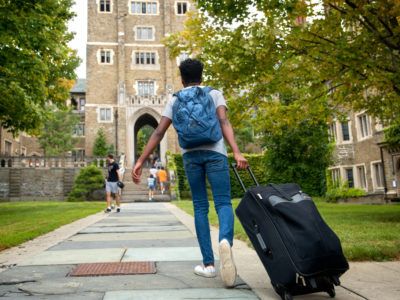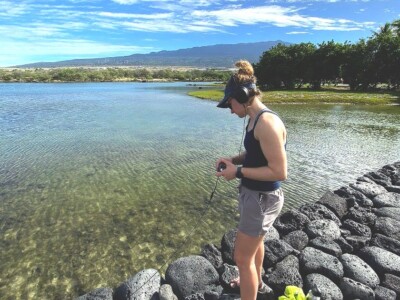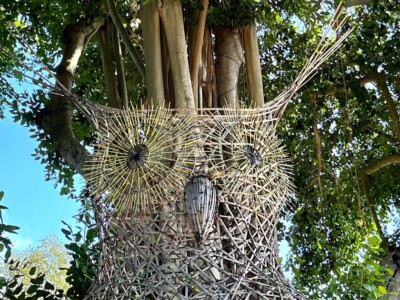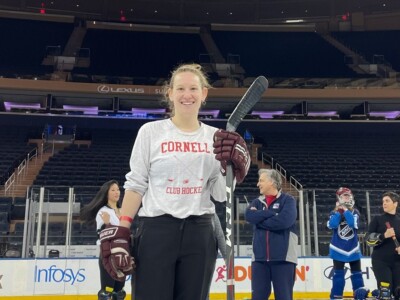Support diversity, inclusion, and equity
We all have a responsibility to create a better world. Your gift can help create a community where everyone has the same opportunities to grow, learn, and thrive.
In the final days preceding Cornell Reunion on June 5-6, leaders of Cornell Mosaic, Cornell Asian Alumni Association, Cornell Black Alumni Association, Cornell Latino Alumni Association, Cornell Native American Alumni Association, Cornell’s LGBTQIA+ Alumni Association, and staff from Diversity Alumni Programs collaborated to revise the Virtual Reunion schedule to create more opportunities for members of diverse communities to gather virtually.
“The new programming was added in direct response to the recent murders of Black Americans and the need to create space for alumni to come together to better understand racial injustice and engage in dialogue,” said Matt Carcella, director of Diversity Alumni Programs and US Regional Engagement.
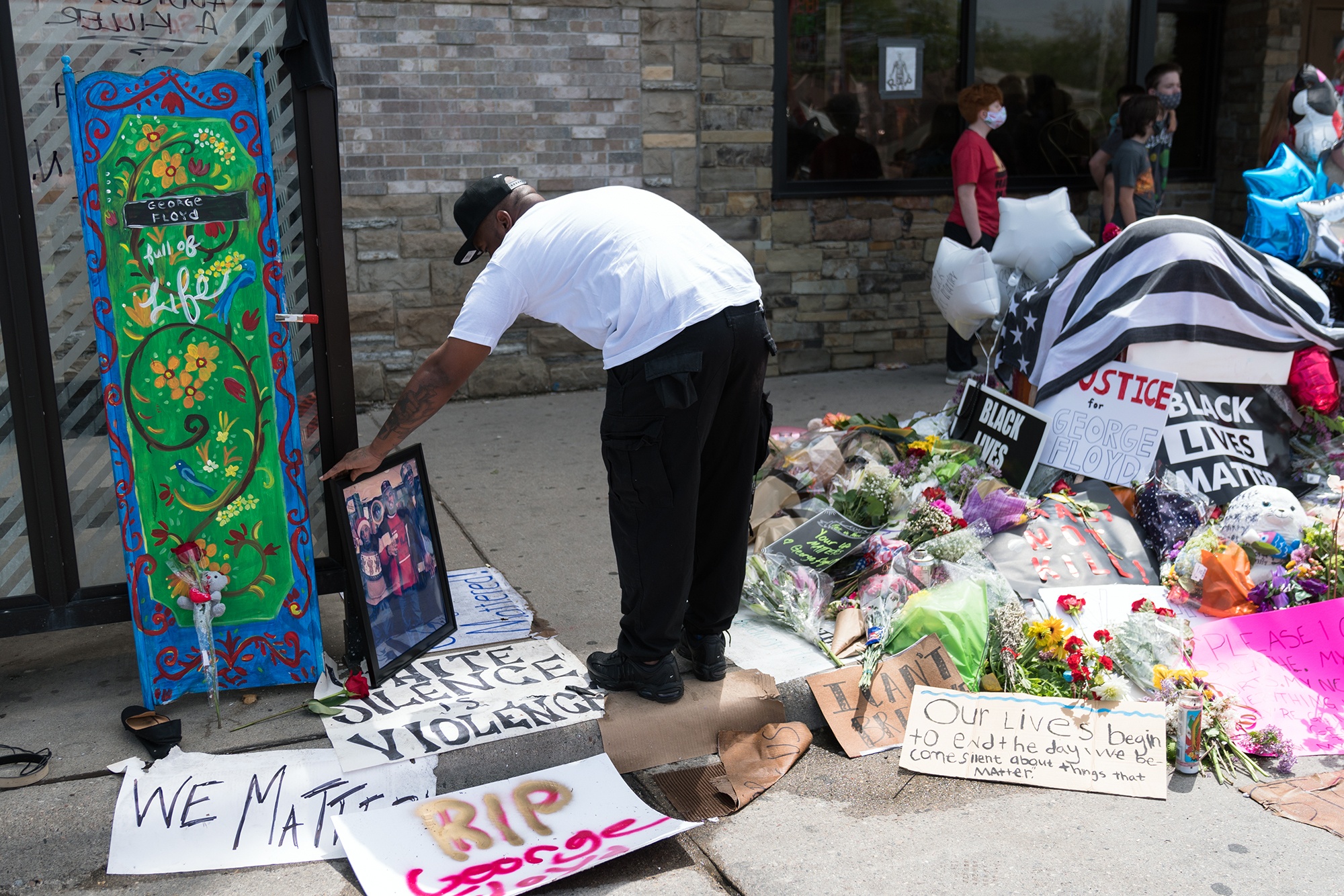
The Mosaic Steering Committee wrote to its members, “Cornell Mosaic shares the heartbreak, frustration, outrage, and pain that many are experiencing during this time of social upheaval. The violence against our communities, the harassment waged at us, and the killings of George Floyd, Ahmaud Arbery, Breonna Taylor, and Tony McDade among many others in recent memory continue to reverberate in our minds and hearts… In distressing times like these, it can be cathartic to come together with others in community.”
Mosaic community members, and alumni from all class years, were invited to participate in a series of online events. Featured events included the previously scheduled “Mosaic Forum: Fireside Chat with Congresswoman Sharice Davids, JD ’10,” as well as new events, including a “Racial Justice Teach-in” and “Reflections on Ahmaud, Breonna, George, and Others: A Community Conversation.”
Fireside Chat with Congresswoman Sharice Davids, JD ’10
Representative Sharice Davids, JD ’10, the first LGBT Native American elected to Congress, followed what she calls a “non-traditional” career path. An advisor at the University of Missouri-Kansas City (UMKC), where Davids completed her undergraduate studies, encouraged her to apply to Cornell Law School.
“I thought, “Cornell’s not gonna take me,’ but my advisor told me, ‘If you don’t apply, you’re the one who’s decided that,’” Davids said.
“The trajectory of my life changed when I decided to apply—when I took the leap, knowing that I might get rejected, but I applied anyway,” she said.
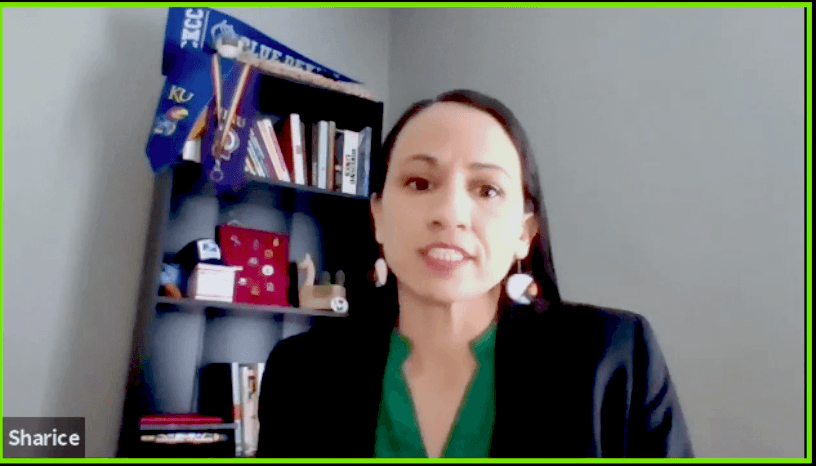
Eduardo M. Peñalver, AB ’94, Allan R. Tessler Dean of Cornell Law School, kicked off the interview by asking Davids how to heal our nation’s wounds and move forward as a country.
“I’m glad we’re choosing to open our conversation with the outrage and heartbreak we’re feeling right now,” Davids replied. “One thing we can be doing is to make sure to keep this [topic] and our action steps at the top of all of our conversations moving forward, until we see the changes we need,” she replied.
“The most helpful thing all of us can do is to be supportive of our Black communities,” Davids said. She recommended that everyone take some time to “grapple with” the history of this country, to better understand the root issues that pervade our society.
Davids expressed her belief that our nation needs leaders who take time to listen to people and try to understand their issues and proposed solutions. “This applies to all of us—as individuals in our personal lives—and to our local, state, and national leaders,” she said.
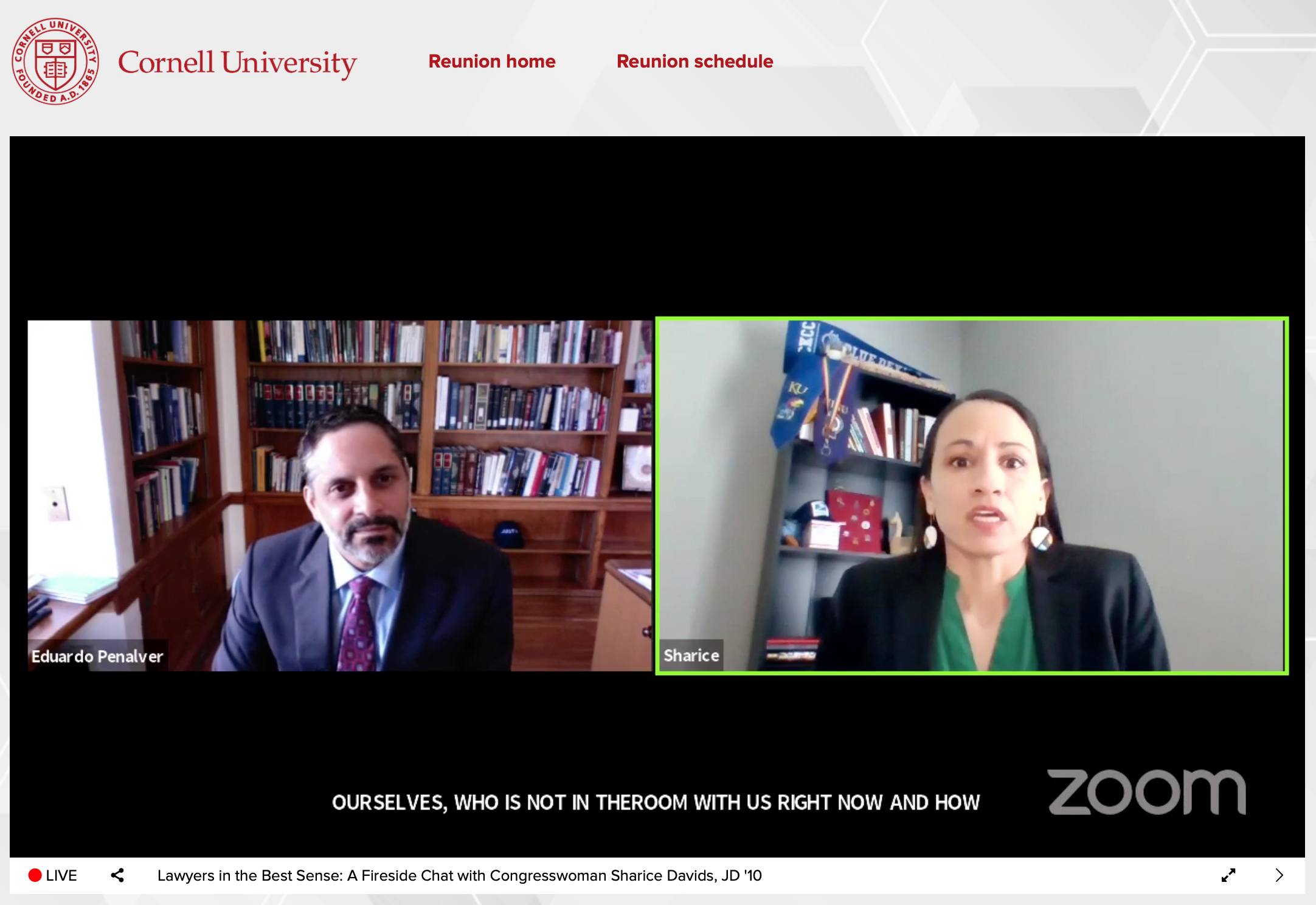
She emphasized the importance of listening “for the sake of listening, rather than for the sake of answering.” Davids said that she consciously practices techniques for talking with people who have different points of view, and that she tries to be “really mindful” when engaging in difficult conversations.
“Think about the small ways that we inadvertently do and say things that are dehumanizing,” she said.
Davids said that in her Congressional work, she often pauses to look around the room and “see who isn’t there.” She then works to include the people who are not currently represented.
“I don’t see issues of racial justice subsiding,” she said. “So many people are coming out and voicing their desire for change.”
Racial Justice Teach-in

John Rawlins III ’06, president of the Cornell Black Alumni Association (CBAA), kicked off the Racial Justice Teach-in, an event aimed at providing historical context on racism in America. Kamillah Knight ’13, MPA ’15, vice president of programming for CBAA, moderated the program.
“I’ve been talking about ‘space’ not just for the past week, but for the past 14 years,” Rawlins said. He urged listeners to give the Black community space to “share how we feel and to express what we want.”
Rawlins said that the role of allies is to follow the lead of the Black community and “echo” the Black community’s messages.
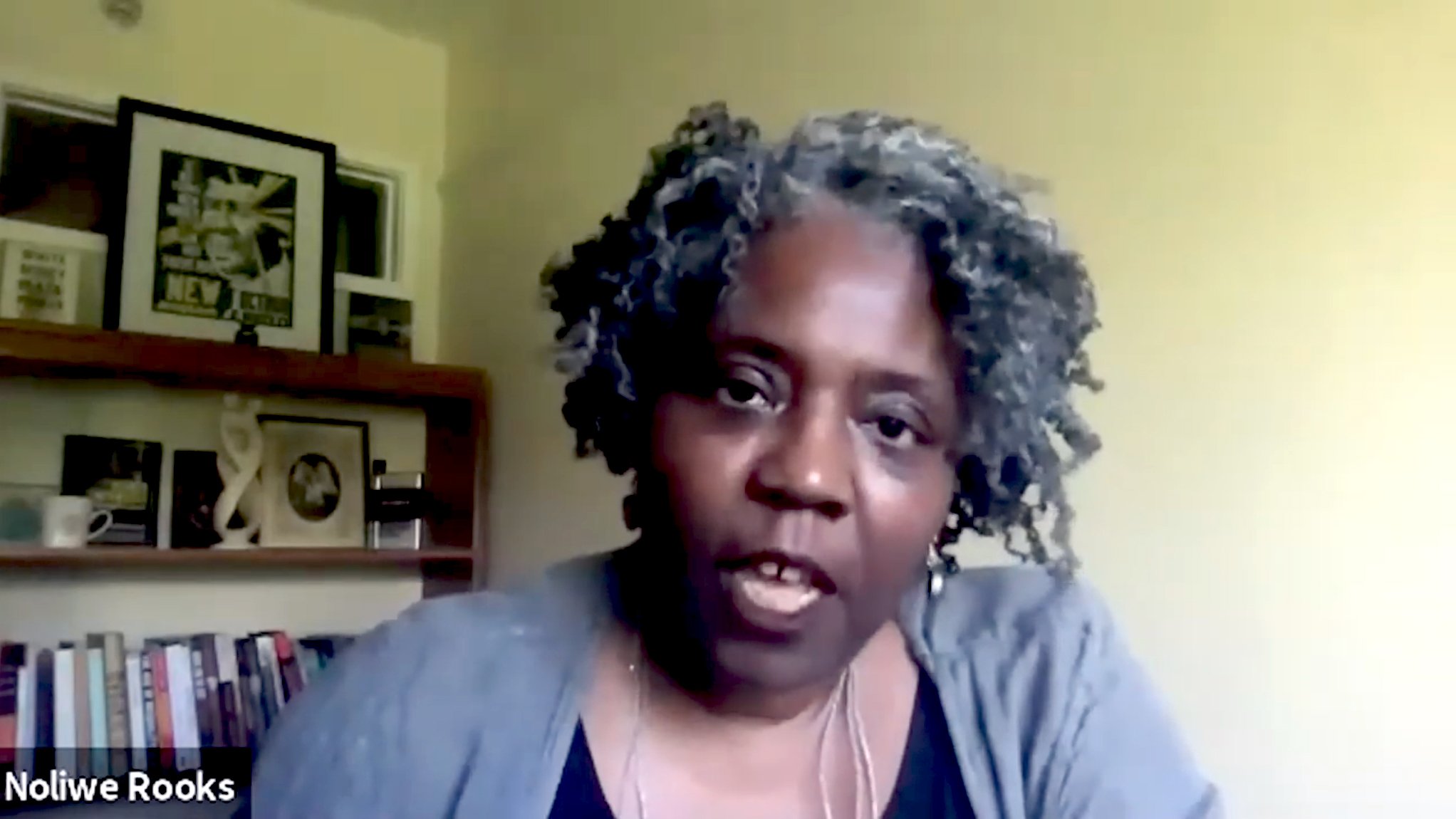
Noliwe Rooks, W.E.B. Du Bois Professor of Literature, explained why she thinks that the current moment is different from other instances of racial protest and calls for redress. “When lasting change takes place,” she said, “you have multi-racial groups who take to the streets. People coalesce around very specific asks, and intersectional alliances are formed.”
Rooks said that this is what happened during abolition and during the civil rights movement, and she believes it’s happening again now. She provided a few concrete examples, including the June 5 apology from NFL Commissioner Roger Goodell for “not listening” to players’ concerns about racism, and the June 6 march in New York City focused on removing the police from schools.
Here at Cornell, Rooks said that over the past 50–60 years, the university has conducted a number of studies looking at inclusion. “Let’s actually read and consider the recommendations of these reports,” she said, rather than commissioning a new study. “We need to pay some serious mind to what’s been said before.”
Rooks hopes that this can become “a campus-wide project that we work on together,” including her “colleagues who don’t really see how embedded racism is in our DNA.”
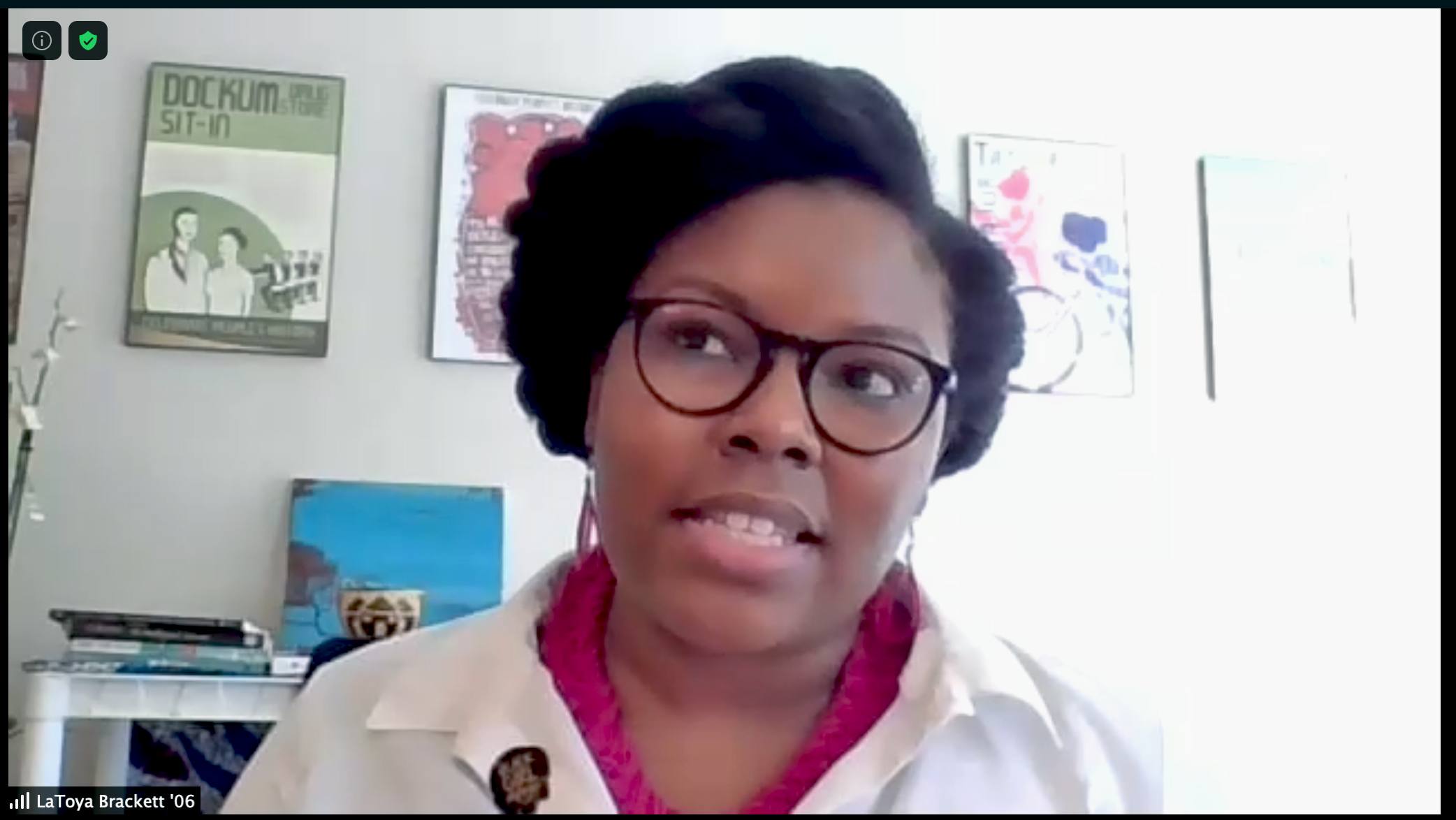
LaToya Brackett ’06, recounted her experience as a student of Africana Studies at Cornell and as an assistant professor of African American Studies at the University of Puget Sound.
“I teach to correct history and alter the outlook of youth,” she said. She explained that 60 percent of the students in her classes have never had a Black K-12 teacher, and 50 percent of them have never had a Black professor.
“I teach them that their Black lives matter in a white space,” Brackett said.
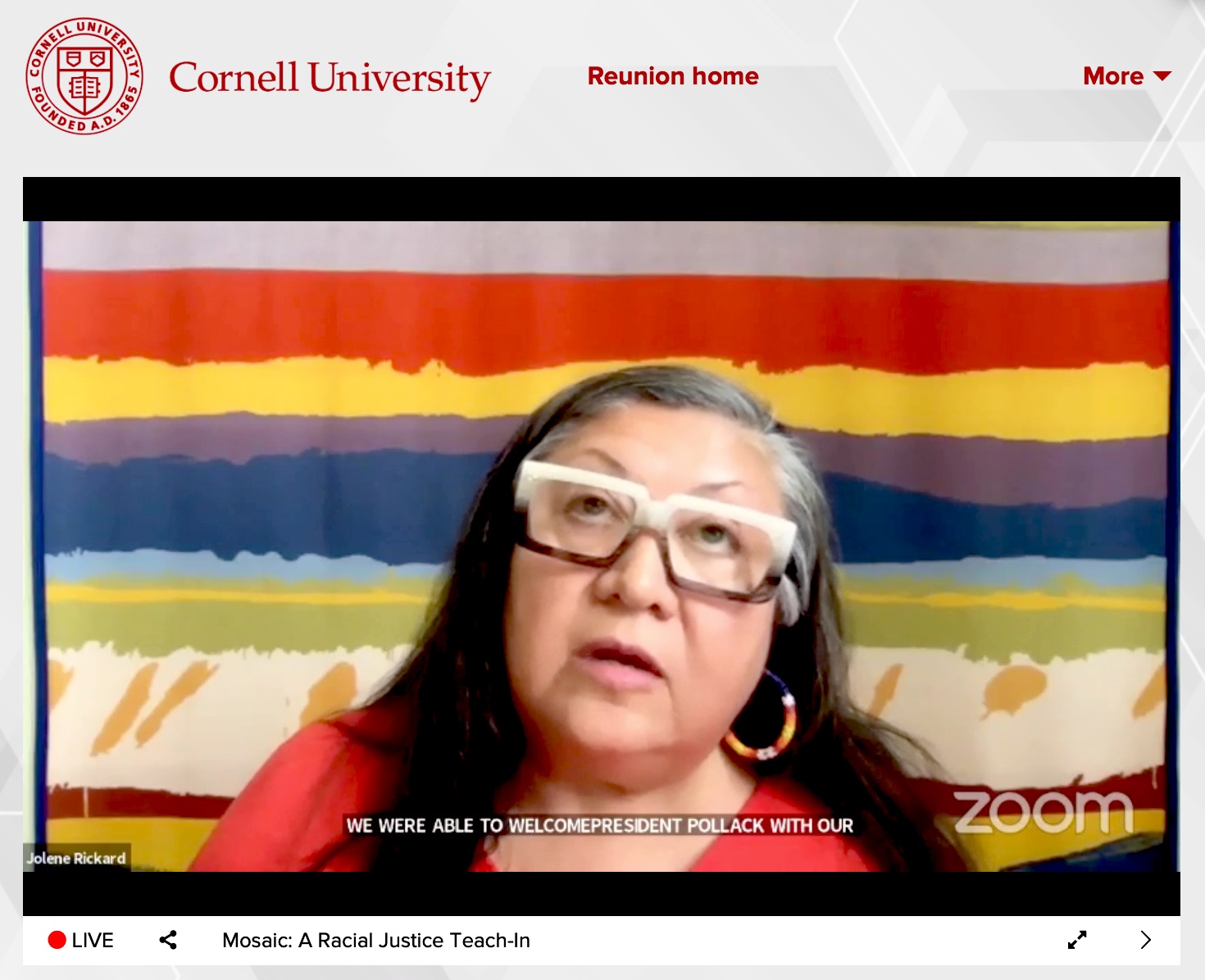
Jolene Rickard, associate professor in the American Indian and Indigenous Studies Program at Cornell, said, “I speak in solidarity with Black people.”
“My ancestors were captured and enslaved, but our enslavement was not profitable because we died,” she said. This is what instigated the colonists’ search for slaves in Africa, Rickard explained.
More than 860 viewers tuned in to the Racial Justice Teach-in livestream. Watch the recording now, which includes several additional speakers.
Reflections on Ahmaud, Breonna, George, and Others: A Community Conversation
John Rawlins III ’06 moderated this conversation among a diverse group of alumni. “It feels like a door is opening,” he said. “The Black community has always had to deal with this, but our white counterparts are now seeing this for what it is.”
Rawlins expressed his gratitude to Alumni Affairs and Development (AAD) for working in tandem with CBAA to develop opportunities for education and conversation at Reunion. “AAD didn’t take the voice of the issue,” he said.
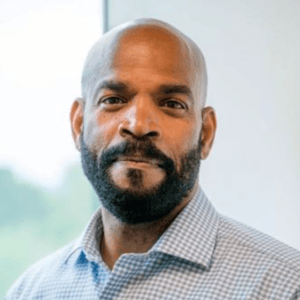
Reginald White ’80, senior director of HR Strategy at Cornell, personally thanked Matt Carcella, director of Diversity Alumni Programs, for his help to quickly mount these events. “I’m happy to be able to say out loud the challenges we face,” White said.
“I feel a little relief that we’re not alone,” White said, “but will your attention still be with us when it gets hard?”
Learn more about how to support diversity and inclusion at Cornell.

